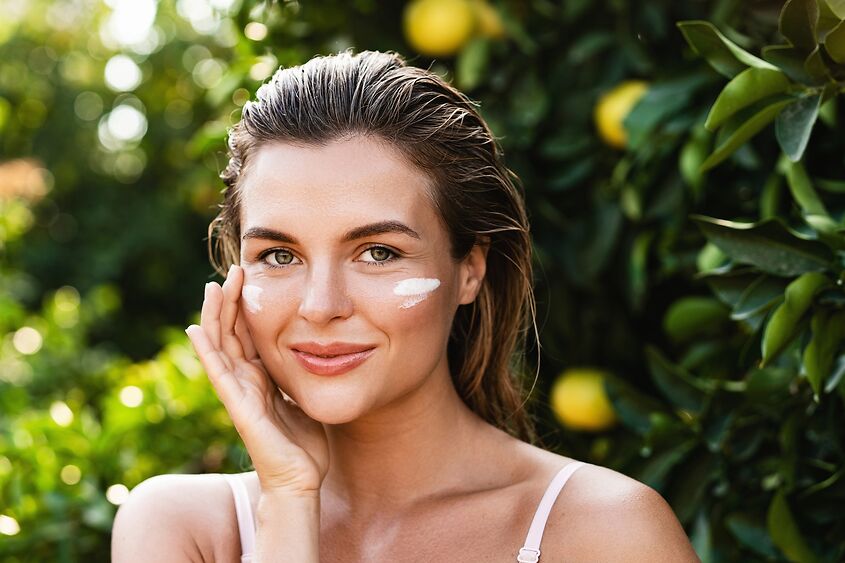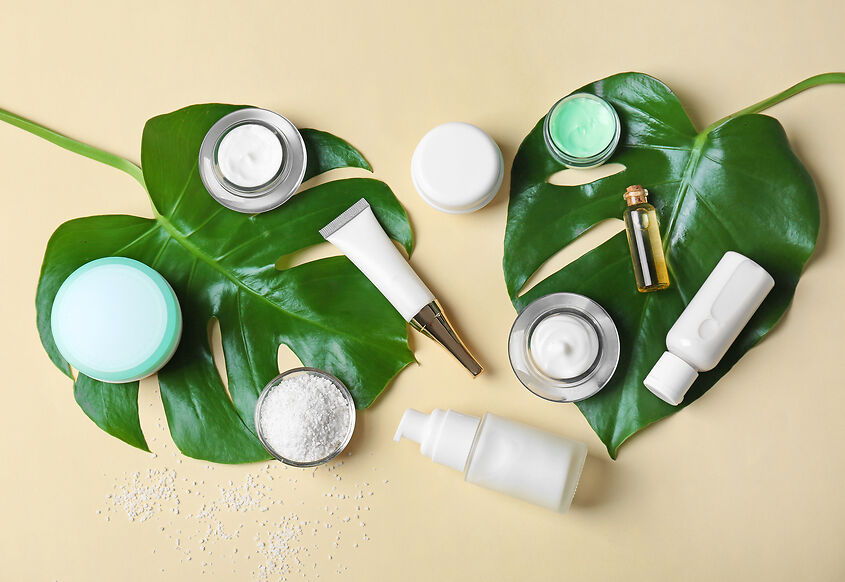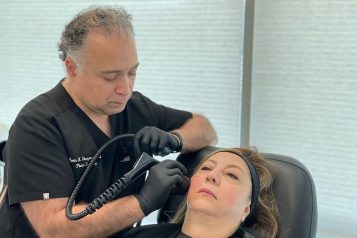As spring approaches, nature undergoes its seasonal transformation, inspiring us to reflect on our own beauty reawakening.
Much like nurturing a garden, skincare demands a combination of knowledge, patience, and adaptability to evolving conditions. By thoughtfully selecting ingredients, understanding our skin's unique needs, and nurturing it with patience, we can step into the spring season with confidence, ready to tend to our skin's 'garden' with the love and attention it deserves.

How Does Your Garden Grow?
Knowing your skin type—whether dry, oily, normal, combination, or sensitive—is crucial for selecting your best skincare ingredients, but where does your skin type come from? The short answer is genetics. Your genes influence everything from sensitivity and oil production to predispositions towards conditions like eczema and rosacea, and even how well your dermis holds onto water.
While you start with some genetic building blocks, your skin type can change over time. It evolves with age, lifestyle, medications, health conditions, hormones, and environmental exposures such as climate and sun damage. These factors can lead to changes like reduced oil production during menopause, resulting in drier skin.
A Garden of Good Ingredients
Identifying the right skincare ingredients involves understanding the requirements of our skin type and the properties of ingredients, whether they are for hydration, moisturization, calming inflammation, exfoliation, or oil absorption.
Emollients and Humectants: Emollients moisturize skin, while humectants attract water. Humectant ingredients include hyaluronic acid, ceramides, and glycerin. These can be sealed with emollients like natural oils to repair and maintain a healthy skin barrier.
Ceramides: Ceramides, lipid molecules in our skin cell membranes, are vital for repairing the natural barrier and shielding against damage, reducing dryness and irritation.
Hyaluronic Acid: This is a polysaccharide that occurs naturally in our skin. It helps our skin to hold onto water, plumping up the skin cells and reducing the visibility of fine lines.
Squalane: A lightweight hydrocarbon that resembles sebum's natural squalene, squalane shields against environmental damage and free radicals, hydrates, and helps regulate oil production.
Retinoids: Retinoids are derivatives of Vitamin A that are well-known by skincare enthusiasts for their ability to fade hyperpigmentation, stimulate collagen production, and clear up the most stubborn and widespread acne. By enhancing collagen synthesis and speeding up cell turnover, they exfoliate and even out melanin distribution, resulting in smoother skin and a more uniform tone.

Growing Better Together
If you are a gardener, you are likely familiar with companion planting. This technique allows different plants to enhance growth, yield, and pest control mutually. Similarly, specific actives can make great companions in your skincare routine. Let's take a look at some companions to help your skincare routine blossom:
- Vitamin C, E, and Ferulic Acid: These antioxidants synergize to protect against free radicals and brighten skin. Ferulic Acid stabilizes vitamins C and E, enhancing their effects.
- Retinol and Hyaluronic Acid: Hyaluronic acid hydrates, mitigating the dryness often associated with retinol use.
- Niacinamide and Zinc: Niacinamide reduces inflammation, while zinc regulates oil production and soothes irritation.
- Peptides and Ceramides: Ceramides reinforce the skin barrier, locking in moisture, as peptides boost collagen production.
- Broad-spectrum SPF goes with everything. No matter what actives you are using, a UVA/UVB sunscreen is crucial for maintaining a happy, healthy barrier and preventing sun damage. Remember that some actives, like retinol, make your skin more sensitive to the sun.
Creating a Harmonious Skin Ecosystem: Safely Selecting Your Best Treatments
Just like how some plants thrive in the sun and others in the shade, some actives do their best work day or night. Antioxidants like vitamins C and E, along with barrier enhancers such as ceramides, squalene, and hyaluronic acid, are great in your a.m. routine. Nighttime is better suited for regenerative products like retinoids, which enhance skin's overnight healing but can increase sun sensitivity.
Consider the concentration of active ingredients like retinoids, vitamin C, niacinamide, and glycolic acid in skincare products. Lower concentrations are less potent, but even a small amount of a powerful ingredient can cause irritation, demonstrating that all skin types can react differently to various strengths.
The next step is to do a patch test. When you are trying a new product or picking up one you haven't used in a while, especially if you've experienced a significant change in your health or lifestyle, like pregnancy or menopause, do a patch test. Apply a small amount of product to your inner elbow or wrist and monitor the area for 24 to 48 hours. The absence of redness, itching, burning, hives, inflammation, or discoloration indicates compatibility.
Finally, remember to go slow. Introduce new products, ingredients, and concentrations, one at a time. In the same way that a well-tended garden doesn't sprout overnight, a radiant complexion is cultivated with dedication and care over time. You want to be the tortoise, not the hare.
Dermatologists: The Master Gardeners
While home skincare addresses many concerns, certain situations necessitate professional treatments for better outcomes. If you are seeking more dramatic improvements than what you've achieved at home, it's time to consider professional treatments. A dermatologist can offer guidance on the most appropriate procedures for your skin type and concerns, like severe acne, deep wrinkles, stubborn or widespread hyperpigmentation, scarring, or conditions like rosacea, eczema, or psoriasis.
For personalized insights into your skincare needs, consider scheduling a consultation with Dr. Mara Weinstein Velez. Prepare for spring by prioritizing your skin health today.
For more information, visit Dr. Mara Weinstein Velez's social media:






















